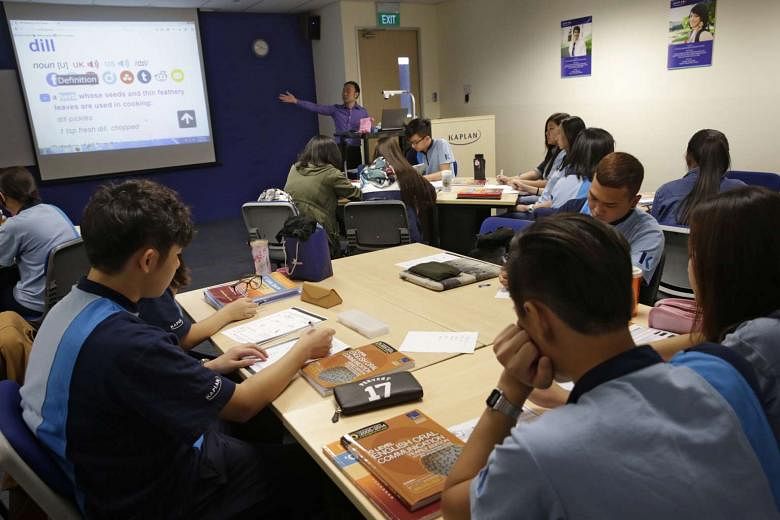More private schools that offer run-of-the-mill degrees are expected to exit as new measures to tighten the quality of the sector take effect.
Those that remain will most likely be the more established ones that offer relevant courses and continue to be more viable as businesses, or niche players that plug gaps in the market, said observers.
Bigger players such as SIM Global Education, Kaplan, Management Development Institute of Singapore and PSB Academy said the new regulations are a step towards greater transparency, academic quality and accountability to students.
Mr Lee Kwok Cheong, president of the Singapore Association for Private Education, said the number of private schools has declined in the last few years - a trend that looks to continue with the new rules.
There are now 291 private education institutions (PEIs), compared with about 1,000 in 2009.
-
RAISING PRIVATE EDUCATION STANDARDS
-
• Private schools that offer degree programmes will need to take part in a yearly graduate employment survey administered by the Committee for Private Education (CPE).
• Such schools, and those offering other programmes like diplomas that lead directly to degrees, must also obtain a four-year EduTrust certification. Existing schools that offer such programmes and do not have this award must apply for it by next June and attain it by June 2018.
• Fresh school-leavers joining private schools will need to meet minimum entry requirements. For instance, those applying for degree programmes must have at least an A-level certificate, a polytechnic diploma or a qualification that provides direct entry.
• To ensure that new schools are properly resourced, a minimum paid-up capital of $100,000 will be required of them with immediate effect.
Existing schools also need to show that their finances are healthy by meeting credit-rating benchmarks by June next year.
• From now, only schools which have at least a four-year registration period with CPE can apply for the EduTrust mark. Currently there are no such restrictions.
Amelia Teng
"There are already requirements, but it is quite clear that the new policies go a step further - focusing on raising the minimum standards for admission, financial strength and capability of PEIs," said Mr Lee.
Ms Denise Phua, who heads the Government Parliamentary Committee for Education, said: "These measures will boost public confidence in PEIs and help to dispel the perception that PEIs are inferior to public education institutions."
National Institute of Education don Jason Tan said smaller players that may not have the financial resources or do not have links to reputable overseas universities would be most affected.
"Those that offer generic business degrees may also lose out in a competitive market," he added.
Mr Lee said private schools must also see themselves as part of the SkillsFuture journey - a national drive to encourage Singaporeans to take up job-oriented skills. For instance, small players must "focus on a niche and be good at it".
Ms Phua said: "As the private education market continues to further consolidate, market forces will influence more PEIs to be even more sensitive to the gaps for training for jobs of the future. As long as the offerings are relevant and in demand, there is always a place for small boutique quality PEIs."
The new rules come at a time of falling private student numbers due to the expansion of local universities and fewer work opportunities for foreign students. There were 77,000 local students and 29,000 foreigners in private schools last year, compared with about 100,000 local students and about 35,000 foreigners four years ago.
The changes will lead to higher course fees at at least one private school here. Aventis School of Management, which is preparing to submit its EduTrust application by the year end, said its course fees are "expected to increase... due to higher operating cost in administering the EduTrust framework".
About 60 per cent of its over 300 students are on degree programmes. The school's director, Ms Joyce Chew, called for more funding to support PEIs. "This will allow us to keep our course fees affordable," she said.

